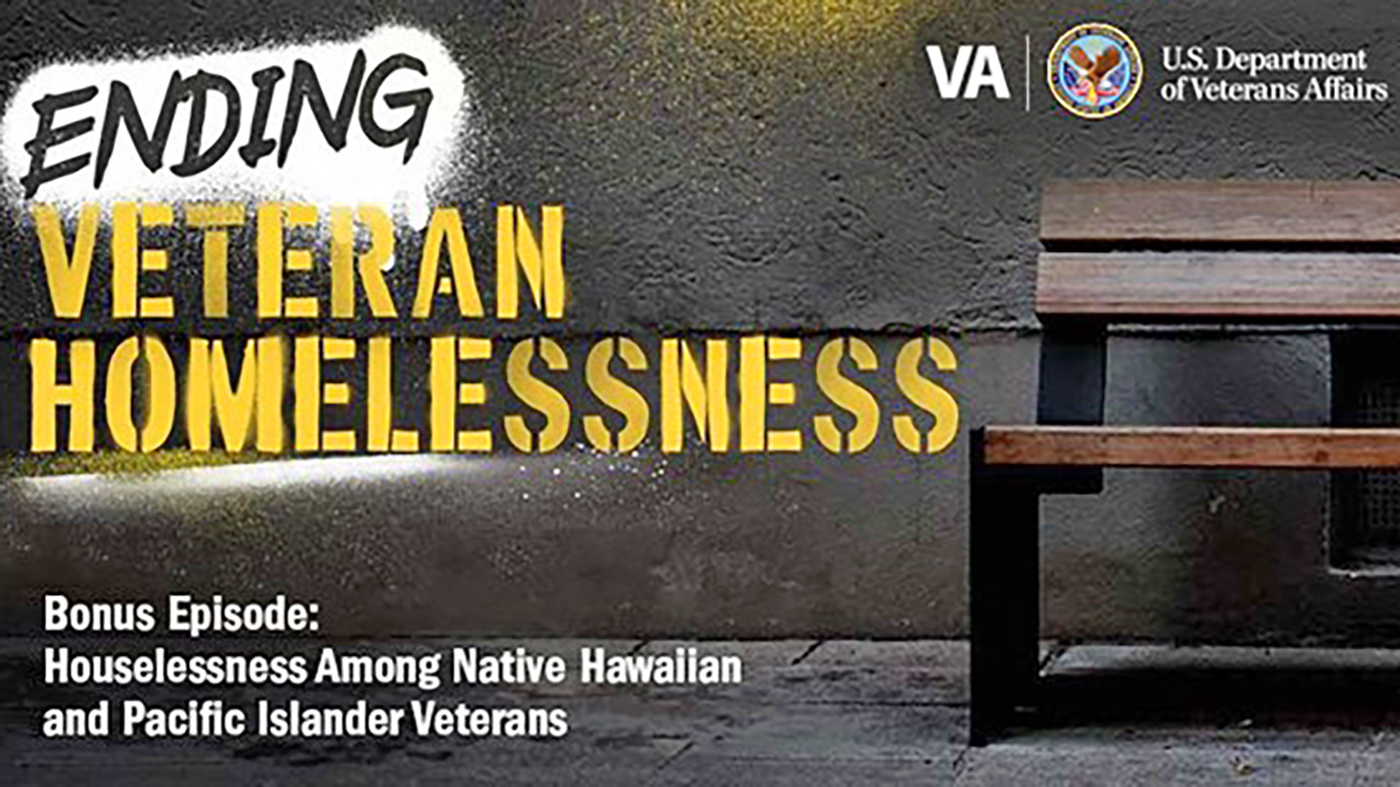For Native Hawaiian and other Indigenous peoples, having a home is deeply connected to land and family, even without a physical house.
This cultural understanding shapes the language we use when working with these Veterans who often prefer terms such as “houseless” or “unsheltered.”
“Using a term like ‘unhoused’ helps to emphasize that the problem is more of a structural one, linked to a lack of affordable housing, and not necessarily a personal or a family weakness,” explained Dr. Sara Wong, clinical psychologist with the Substance Treatment Clinic at Pacific Islands VA.
A lesson in cultural humility
Respecting and honoring the cultural backgrounds of the Veterans we serve is vital to our work to end Veteran houselessness.
While this is often referred to as cultural competency, Wong and fellow guest Dr. Marissa Sia, clinical psychologist with the Intensive Virtual Outpatient Psychotherapy Team at Pacific Islands VA, prefer the term “cultural humility.”
Cultural humility emphasizes that learning about other cultures is an ongoing process rather than a static achievement. It encourages us to view cultural differences as opportunities rather than obstacles. This approach also fosters trust, enhances communication and ultimately improves outcomes by honoring the unique cultural identities and perspectives of Veterans.
Combating high rates of houselessness
Pacific Islands VA spans a vast and culturally diverse region in Oceania, including:
- Polynesia, which encompasses about 1,000 islands from Hawaii to Easter Islands, and includes the cultural subgroups of Native Hawaiians, Samoans and Tahitians.
- Micronesia, which consists of about 2,000 islands from the Marshall Islands to the Mariana Islands, and includes the cultural subgroups of Chamorros, Carolinians and Marshallese.
- Melanesia, which contains the nations of Fiji and New Guinea, and includes the cultural subgroups of Papuan and Austronesians.
These populations have some of the highest rates of houselessness in the U.S. with 121 out of every 10,000 experiencing a lack of housing as of 2022.
Navigating a complicated history
Most Veterans in the region hail from Polynesia and Micronesia partly due to the long-standing presence of the U.S. military. While the military serves as one of the area’s largest employers—offering a source of income, housing and health benefits—its history in Oceania is complicated.
“Challenges like colonization, exploitation of natural resources, forced assimilation and displacement from ancestral lands can leave these really deep scars that may have happened decades or centuries ago but continue to affect Native Hawaiian Pacific Islander individuals,” said Dr. Sia.
Ongoing tensions persist over access to land, the preservation of cultural sites and the environmental impacts of the military presence. Native Hawaiian and Pacific Islanders have varying rights depending on whether they were born in a state or territory.
With a commitment to cultural humility, VA health care providers are working to understand these nuances to better serve Native Hawaiian and Pacific Islander Veterans facing housing uncertainty.
Learn about VA programs
- If you are a Veteran who is homeless or at risk for homelessness, call the National Call Center for Homeless Veterans at 877-4AID-VET (877-424-3838).
- Visit the VA Homeless Programs website to learn about housing initiatives and other programs for Veterans exiting homelessness.
Topics in this story
Link Disclaimer
This page includes links to other websites outside our control and jurisdiction. VA is not responsible for the privacy practices or the content of non-VA Web sites. We encourage you to review the privacy policy or terms and conditions of those sites to fully understand what information is collected and how it is used.
More Stories
Take the Five Days to be Healthier Together challenge to be stronger and healthier.
VA is putting Veterans in the driver's seat for making medical appointments.
Larry Trujillo lost 44 pounds and improved his relationship with food during the 90-day TeleMOVE! telehealth program.





